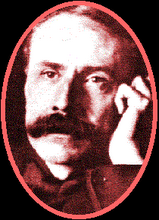Saturday, 26 April 2008
We’re all equal now…
But surely in this day and age what was being most beautifully satirised is a thing of the past. Well no not really. There may not be as rigid a class system as there was a few decades ago but it seems that hierarchies and pecking orders are still very much on our minds even if we wouldn’t really like to admit it.
The American National Institute of Mental Health has found, through the use of fMRI scanning, that there is brain circuitry associated with social status.
They found that different brain areas are activated when a person moves up or down in a pecking order or just by viewing those perceived social superiors or inferiors. Circuitry activated by important events responded to a potential change in hierarchical status as much as it did to winning money.
NIMH researchers created an artificial social hierarchy in which 72 participants played an interactive computer game for money. They were assigned a status that they were told was based on their playing skill. In fact, the game outcomes were predetermined and the other "players" simulated by computer. While their brain activity was monitored by fMRI, participants intermittently saw pictures and scores of an inferior and a superior "player" they thought were simultaneously playing in other rooms.
Although they knew the perceived players' scores would not affect their own outcomes or reward (and were instructed to ignore them) participants' brain activity and behaviour were highly influenced by their position in the implied hierarchy.
The study found that;
• The area that signals an event's importance, called the 'ventral striatum', responded to the prospect of a rise or fall in rank as much as it did to the monetary reward, confirming the high value accorded social status.
• Just viewing a superior human "player," as opposed to a perceived inferior one or a computer, activated an area near the front of the brain that appears to size people up, making interpersonal judgments and assessing social status. A circuit involving the mid-front part of the brain that processes the intentions and motives of others and emotion processing areas deep in the brain activated when the hierarchy became unstable, allowing for upward and downward mobility.
• Performing better than the superior "player" activated areas higher and toward the front of the brain controlling action planning, while performing worse than an inferior "player" activated areas lower in the brain associated with emotional pain and frustration.
• The more positive the mood experienced by participants while at the top of an unstable hierarchy, the stronger was activity in this emotional pain circuitry when they viewed an outcome that threatened to move them down in status. In other words, people who felt more joy when they won also felt more pain when they lost.
That said, and I don’t know about you but in the main I tend to be more concerned about my responsibilities to my own rather than worrying overmuch about where I fit into the great scheme of things. Not being inordinately ambitious.
Mind you at least when next time Mrs G give me a withering and disapproving look for banging on about the ‘bloody proles / chavs’ I have an excuse. I’m not a snob or indeed suffering from ‘false class consciousness’ as she, being marginally to the left of me, would put it. I’m just hard wired that way.
Subscribe to:
Post Comments (Atom)














5 comments:
Interesting but ...
- the game has created an artificial, exaggerated and competitive environment. This may or may not mimic real life
- the four findings you list are not unexpected in either terms of the social experience or that different parts of the brain are involved.
That the researchers appear to have identified the aras of the brain involved is interesting.
That said, and I don’t know about you but in the main I tend to be more concerned about my responsibilities to my own rather than worrying overmuch about where I fit into the great scheme of things. Not being inordinately ambitious.
Over here I tend to be into"survival" but that is ameliorated by the ladies.
The clip was brilliant - I remember it well.
Well I would find it difficult to believe any conclusions on feelings about social status based on this artificial study. It seems highly odd to me. Still probably missing the whole point. What else is new?
Interesting...I do like to think I'm not too bothered, though have to admit to being more interested in people who can read and write than in those who can't...
Post a Comment